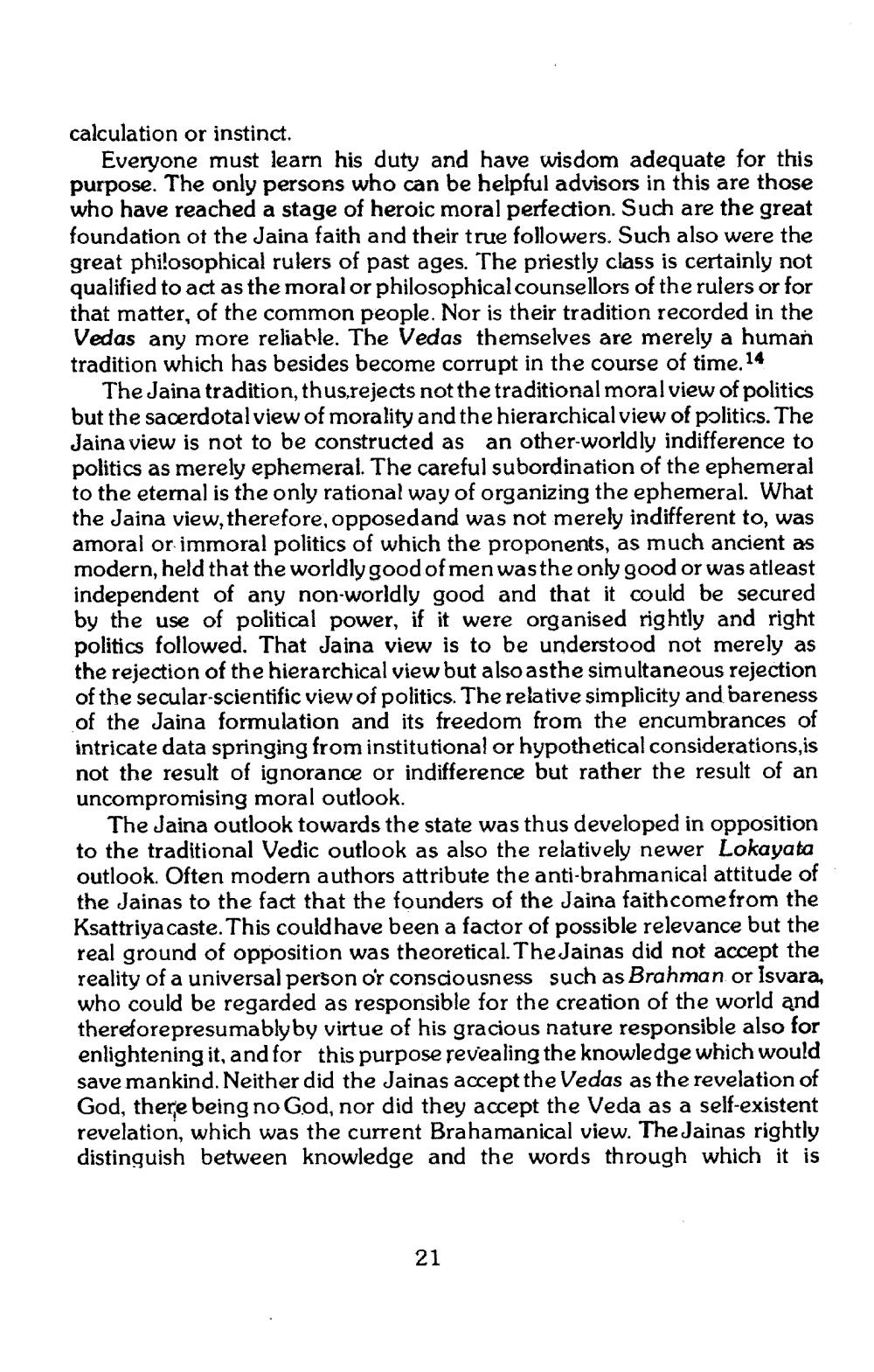________________
calculation or instinct.
Everyone must learn his duty and have wisdom adequate for this purpose. The only persons who can be helpful advisors in this are those who have reached a stage of heroic moral perfection. Such are the great foundation of the Jaina faith and their true followers. Such also were the great philosophical rulers of past ages. The priestly class is certainly not qualified to act as the moral or philosophical counsellors of the rulers or for that matter, of the common people. Nor is their tradition recorded in the Vedas any more reliable. The Vedas themselves are merely a human tradition which has besides become corrupt in the course of time. 14
The Jaina tradition, thus,rejects not the traditional moral view of politics but the sacerdotal view of morality and the hierarchical view of politics. The Jaina view is not to be constructed as an other-worldly indifference to politics as merely ephemeral. The careful subordination of the ephemeral to the eternal is the only rational way of organizing the ephemeral. What the Jaina view, therefore, opposed and was not merely indifferent to, was amoral or immoral politics of which the proponents, as much ancient as modern, held that the worldly good of men was the only good or was atleast independent of any non-worldly good and that it could be secured by the use of political power, if it were organised rightly and right politics followed. That Jaina view is to be understood not merely as the rejection of the hierarchical view but also asthe simultaneous rejection of the secular-scientific view of politics. The relative simplicity and bareness of the Jaina formulation and its freedom from the encumbrances of intricate data springing from institutional or hypothetical considerations,is not the result of ignorance or indifference but rather the result of an uncompromising moral outlook.
The Jaina outlook towards the state was thus developed in opposition to the traditional Vedic outlook as also the relatively newer Lokayata outlook. Often modern authors attribute the anti-brahmanical attitude of the Jainas to the fact that the founders of the Jaina faith come from the Ksattriya caste. This could have been a factor of possible relevance but the real ground of opposition was theoretical. The Jainas did not accept the reality of a universal person or consciousness such as Brahman or Isvara, who could be regarded as responsible for the creation of the world and thereforepresumably by virtue of his gracious nature responsible also for enlightening it, and for this purpose revealing the knowledge which would save mankind. Neither did the Jainas accept the Vedas as the revelation of God, there being no God, nor did they accept the Veda as a self-existent revelation, which was the current Brahamanical view. The Jainas rightly distinguish between knowledge and the words through which it is
21




